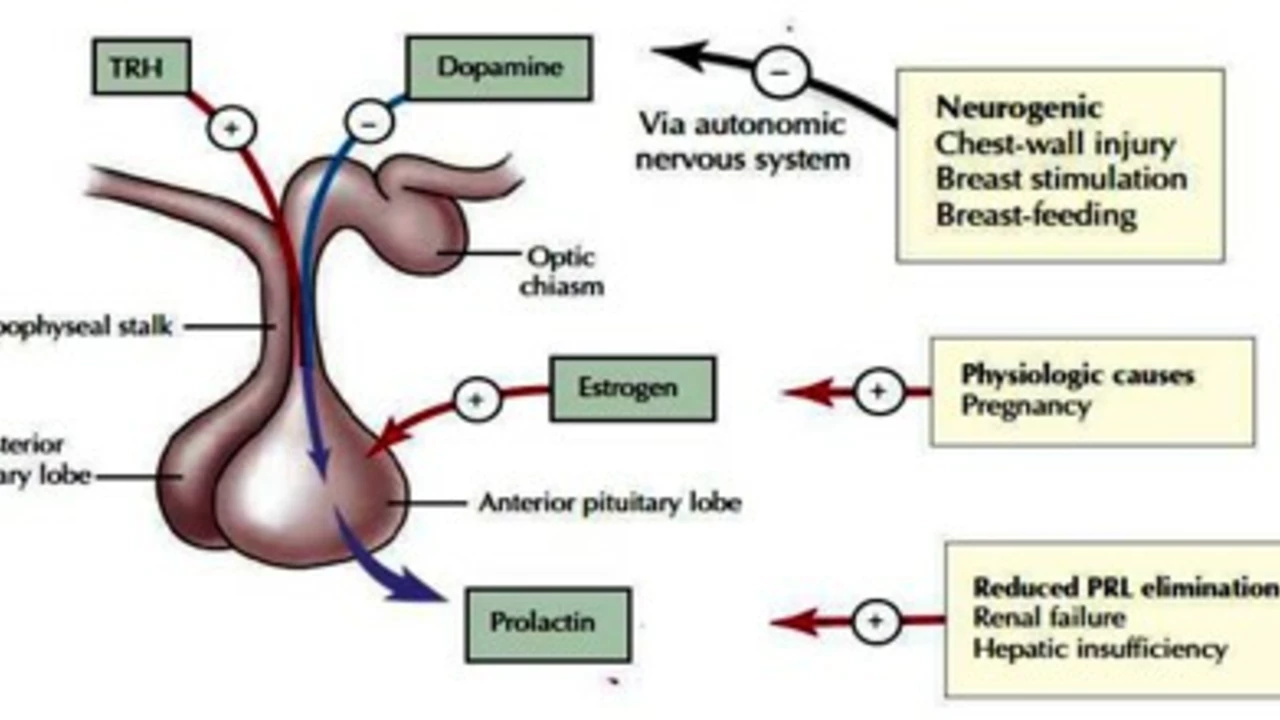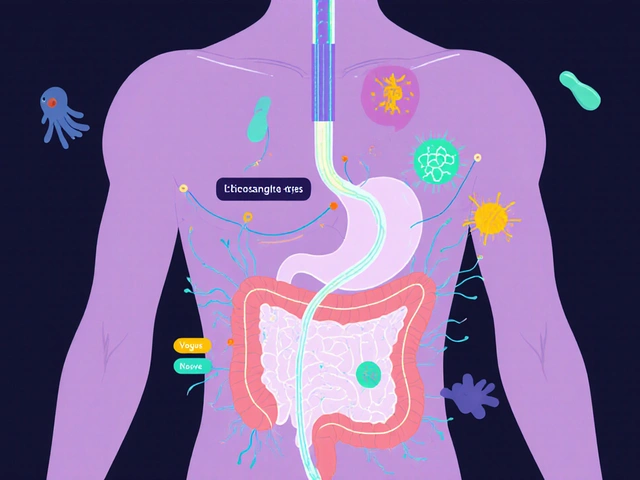Prolactin: what it is and why levels matter
Prolactin is a hormone made by the pituitary gland that mostly controls breast milk production. It affects sex hormones, fertility, mood, and bones. Small rises are normal during sleep, after exercise, or after sex. But persistently high prolactin can cause clear problems like missed periods, infertility, low libido, and breast milk leaking when you are not pregnant.
Common signs to watch for include stopped or irregular periods in women, milky nipple discharge, trouble getting pregnant, and in men lower sex drive, erectile problems, or breast tissue growth. Both sexes can feel tired, depressed, or lose bone density over time if high prolactin lowers estrogen or testosterone.
What raises prolactin? Pregnancy and breastfeeding are the most common natural causes. A benign pituitary tumor called a prolactinoma is a frequent pathological cause. Several medications raise prolactin, especially older antipsychotics, some antidepressants, metoclopramide, and high doses of opioids. Other causes include untreated low thyroid (high TRH raises prolactin), chest surgery or injury, kidney or liver disease, and repeated nipple stimulation. Stress, intense exercise, and even a blood draw done when you are anxious can push levels up briefly.
How testing works
Testing is a simple blood test. Labs report prolactin in ng/mL or µg/L; normal ranges vary but roughly under 20–25 ng/mL for nonpregnant women and a bit lower for men. Because levels change with time and activity, your doctor may ask for a morning sample and to avoid sex, heavy exercise, nipple stimulation, and certain medicines for a short period before testing. If a single result is mildly high, repeat testing helps rule out a transient spike. If levels are moderately to very high, your doctor will usually check thyroid function and may order a pituitary MRI to look for a prolactinoma. Some labs report macroprolactin — a benign form that can falsely raise results — so ask about that if numbers don’t match symptoms.
Treatment and what you can do now
If a medication is the cause, switching or lowering the dose may fix it. For prolactinomas and many cases of true hyperprolactinemia, doctors use dopamine agonists like cabergoline or bromocriptine. These drugs often lower prolactin, shrink small tumors, and restore periods and fertility. Surgery is rarely needed unless drugs fail or a large tumor presses on the optic nerves. Treating an underlying thyroid problem will lower prolactin when thyroid levels are off.
Practical checklist before your appointment: note all medicines and supplements, list symptoms and dates, avoid sex and intense workouts for 24 hours before the blood test, and write down any headaches or vision changes. Seek prompt care if you have sudden severe headaches or vision loss — that may mean a large pituitary mass.
Talk to your clinician with this info and they’ll guide testing and treatment specific to you.
Follow-up often includes repeat blood tests and periodic MRI scans. Discuss pregnancy planning and fertility while on therapy. Keep a symptom diary to track treatment progress and side effects regularly.

The Role of Prolactin in Hyperprolactinaemia: A Comprehensive Overview
In my latest blog post, I've delved into the role of the hormone prolactin in a condition known as hyperprolactinaemia. This disorder is characterized by an excess of prolactin in the blood, which can lead to various symptoms like irregular periods and infertility in women, and decreased libido in men. The main cause of hyperprolactinaemia is often linked to problems in the pituitary gland where prolactin is produced. I've also discussed the various treatment options available for this condition. It's a comprehensive overview that can greatly help anyone dealing with this health issue.
View More




